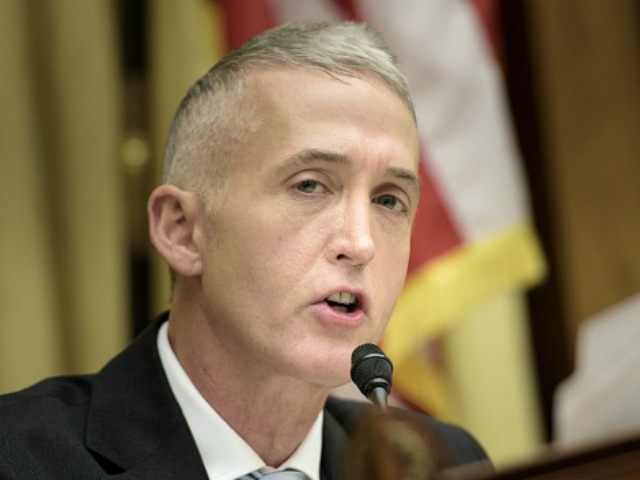The report of the House Select Committee on Benghazi was released Tuesday, and landed with a thud — despite being full of revelations indicating President Barack Obama and former Secretary of State Hillary Clinton failed in their most basic duties.
Chairman Trey Gowdy (R-SC) tried his best, given the obstruction of the White House, and the media’s obsequious efforts to protect Clinton. But he also hurt himself by making several unnecessary errors in handling the media aspect of the inquiry.
1. Failing to make Clinton take the oath in public. Gowdy and the committee agreed to let Hillary Clinton swear-in behind closed doors, sparing her a potentially embarrassing spectacle. Gowdy’s intentions were, no doubt, good, and he wanted to protect the committee from accusations that it was being used for partisan purposes. But by making special arrangements for Clinton, the committee also allowed the media to avoid acknowledging that she was, in fact, accountable for her (in)actions.
2. Leaving the best questions for last in Clinton’s testimony. The media and the public only paid close attention to the first part of Clinton’s 11-hour testimony (predictably). By the time the committee reached crucial questions — including questions about her email server — it was already late in the game, by which time Clinton had already breezed through earlier and easier questions, allowing the media to spin stories about her tenacity. Gowdy wanted to build a case, but failed to build a narrative.
3. Gowdy’s post-hearing blunder. Gowdy told reporters after the hearing: “I don’t know that she testified that much differently today than she has previous times she’s testified.” That may be acceptable for a prosecutor like Gowdy in a court of law; no prosecutor examines a witness without knowing in advance what he or she will say. But this was a contest, not a court, and the media treated Gowdy’s statement as an admission of failure. CNN replayed that clip over and over again.
4. Failing to draw hard conclusions in the final report. As Brent Bozell aptly noted, the committee’s final report fails to reach key conclusions and to determine responsibility for the Benghazi disaster. Yes, the Obama administration failed to provide important information, but then that should have led to inferences being drawn against them. Gowdy said that he trusted the media to read the report for themselves and arrive at appropriate conclusions. That is never, ever going to happen.
5. Fearing the bogus charge of “politicization.” The overall flaw in the process was fear that the committee would be seen as a purely political exercise. That is a legitimate concern, especially since the public has the right to know what happened in Benghazi, absent any political considerations. Unfortunately, the Democrats were always going to accuse the committee of being politicized, no matter how scrupulously fair it was. Better to have faced that charge head-on and fight for the truth.
Joel B. Pollak is Senior Editor-at-Large at Breitbart News. His new book, See No Evil: 19 Hard Truths the Left Can’t Handle, will be published by Regnery on July 25 and is available for pre-order through Amazon. Follow him on Twitter at @joelpollak.

COMMENTS
Please let us know if you're having issues with commenting.